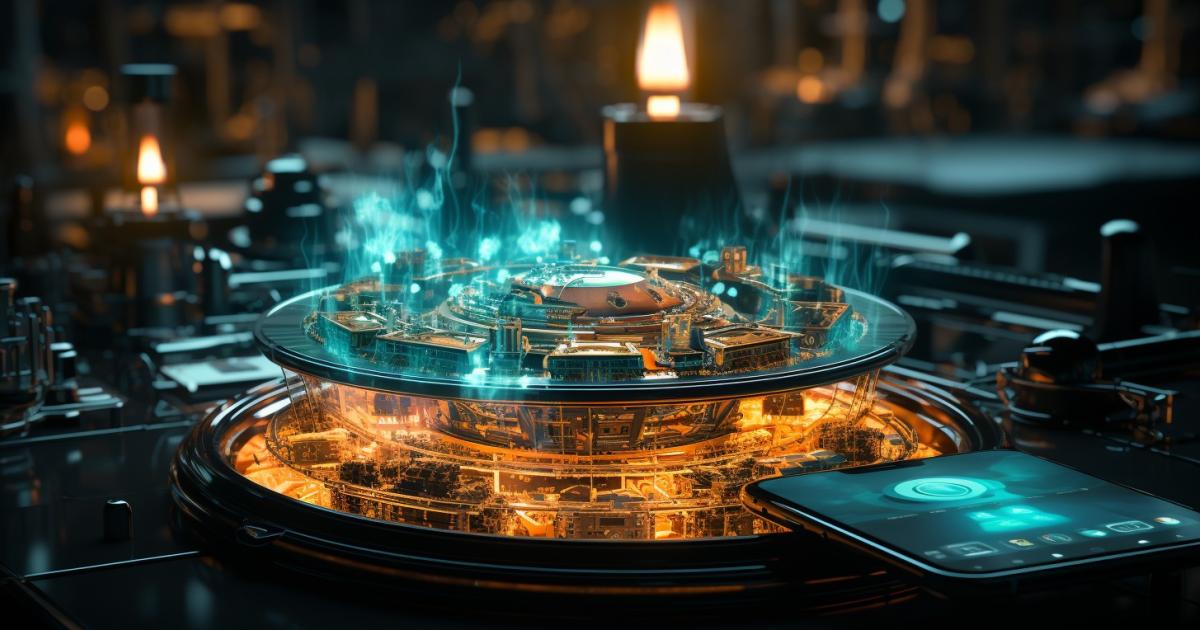China has unveiled a radioactive battery that can charge a cell phone for 50 years

A Chinese startup has developed a small nuclear battery, about the size of a small coin, that it claims can generate electricity for 50 years without needing to be recharged. Chinese company Betavolt, headquartered in Beijing, suggests that this technology could potentially power smartphones in the future, although there is still a long way to go before this wish becomes a reality.
The BV100 is smaller than a coin and captures energy from the radioactive decay of elements.
The company claims its nuclear battery is the first in the world to successfully miniaturize nuclear power, packing 63 nuclear isotopes into a module smaller than a coin. As the company moves from the development stage to the pilot stage, they are preparing for full-scale production and a major market launch. Their desire is to begin creating these batteries in 2025.
In particular, the Chinese company Betavolt New Energy Technology is introducing a modular nuclear battery that uses a combination of the radioactive isotope nickel-63 (⁶³Ni) and a fourth-generation diamond semiconductor.

However, while nuclear batteries may seem like a futuristic device, they have been around in one form or another since the early 1950s. For example, most of the generators we know of are called radiothermal generators, which convert the heat of decaying radioactive elements into electricity using a kind of thermocouple or Stirling engine.
The 1950s were a time of intense innovation and geopolitical tension. The Cold War was in full swing, and with it the race for nuclear superiority. However, along with the development of nuclear weapons, there was a concerted effort to use nuclear energy for peaceful purposes, epitomized by President Eisenhower’s Atoms for Peace program. It was in this atmosphere of fear and hope that the concept of nuclear batteries took shape.
These physical batteries have an energy density ten times greater than ternary lithium batteries.
The fundamental principle of a nuclear battery is to convert the energy released by radioactive decay into electricity. Over time, nuclear batteries began to be used in remote locations, such as lighthouses and navigation beacons, where battery replacement is impractical or even impossible. In the medical field, nuclear batteries in the form of radioisotope-powered pacemakers have become a long-term solution for patients, although they have largely been replaced by lithium-ion batteries due to concerns about radioactive materials in the body. And so there are a few more examples, but…
While this new battery is nothing new, they have added a big innovation.
The new battery, called “BV100”, is smaller than a coin, measures 15 x 15 x 5 millimeters, and generates 100 microwatts of power. It contains a radioactive isotope, or variant of nickel, as its energy source and will be the first of its kind to be widely available for purchase, Betavolt officials said in a press release. If future generations of batteries are approved for use in devices such as smartphones, they will forever eliminate the current need and obligation to charge them, the company says.
The battery could allow devices such as smartphones to last indefinitely without recharging
Buying an electronic product that can last 50 years on a single charge would be revolutionary, but the BV100, which is in the pilot phase before mass production, doesn’t offer much power, at least for now.
His innovations:
First, a safe miniature nuclear battery with a maintenance-free life of 50 years, the company says.
Second, Betavolt claims to be the only company in the world with the technology to dope large diamond semiconductor materials, such as those used in the BV100.
In essence, Betavolt claims a breakthrough in the creation of nuclear energy that is compact and potentially applicable for various practical purposes. According to the company’s President and CEO Zhang Wei, these nuclear batteries continuously generate electricity, producing 8.64 joules per day and 3,153 joules per year, while they are capable of storing 3,300 megawatts in just one gram without the risk of fire or explosion. Because it generates electricity rather than storing it in chemical reactions, it is not susceptible to recharge cycle problems. ⁶³Ni decays over time into non-radioactive copper, creating minimal risk to the environment.
Batteries of the future
The company also believes that these batteries are safe for medical devices inside the human body, such as pacemakers and cochleae, without external radiation. So, if legislation allows, 1-watt batteries could hit the mass market as early as 2025 and power our cell phones and other devices indefinitely in the future. In the future, the company plans is creating more powerful batteries and wants to explore the possibility of using different radioactive isotopes.
“The company plans to release a 1W battery in 2025. If politics allows, nuclear batteries could make it possible to never have to charge a cell phone, and Drones that can only fly for 15 minutes can fly continuously“, Betavolt representatives concluded in a press release.
China has unveiled a radioactive battery that can charge a cell phone for 50 years
References:
Betavolt Technology Website
